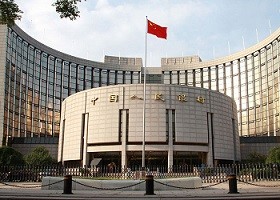China’s central bank has lowered benchmark deposit and lending rates by 25 points starting on Wednesday, Aug. 26, in an effort to ease companies' debt burdens and curb expanding downward risks, the China Daily reported.
According to the People's Bank of China, the one-year deposit rate for financial institutions fell 1.75 percent after the adjustment, and the lending rate dropped to a record low of 4.6 percent.
The report said that it was the fifth drop in interest rates since Nov. 2014; the last one was on June 28 this year.
Aside from those adjustments, the central bank also reduced the reserve requirement ratio (or the amount of money banks must hold) by 50 basis points for all financial institutions, starting on Wednesday, Aug. 26, to ensure that the banking sector has sufficient liquidity and stable growth in credit.
Economists said that the measure was done to offset capital outflows, which have increased since the third quarter.
Ma Jun, chief economist of the central bank's research bureau, said that the cut in interest rates and the reserve ratio will help to stabilize expectations, but it will not affect the monetary policy.
Liang Hong, chief economist at China International Capital Corp., pointed out that the main factor behind the rate cuts was the intensified deflationary pressure.
"Even after the cuts, China's interest rate is still higher than those of the world's major economies," said Liang, who believes recent low inflation provides more room for policy fine-tuning.
Since July, economic indicators showed that the downtrend to the country's economic growth momentum has resumed following its short-term rebound in May and June.
Unrest in the Chinese stocks continued on Tuesday, Aug. 25, as the benchmark Shanghai Composite index dropped further to 7.6 percent below the 3,000 level. It fell 8.5 percent on Monday, Aug. 24.
The extra 50 basis points reserve ratio cut for rural financial institutions, including the non-county level rural commercial banks and rural credit cooperatives, was allowed by the central bank as a way to support agricultural activities and small businesses, the report said.
The central bank said that the ratio cut for financial lease companies and auto financing companies has reached 3.5 percentage points.
"We still believe that the Chinese authorities will succeed in averting an economic hard landing," said Mark Haefele, global chief investment officer at UBS AG.



























